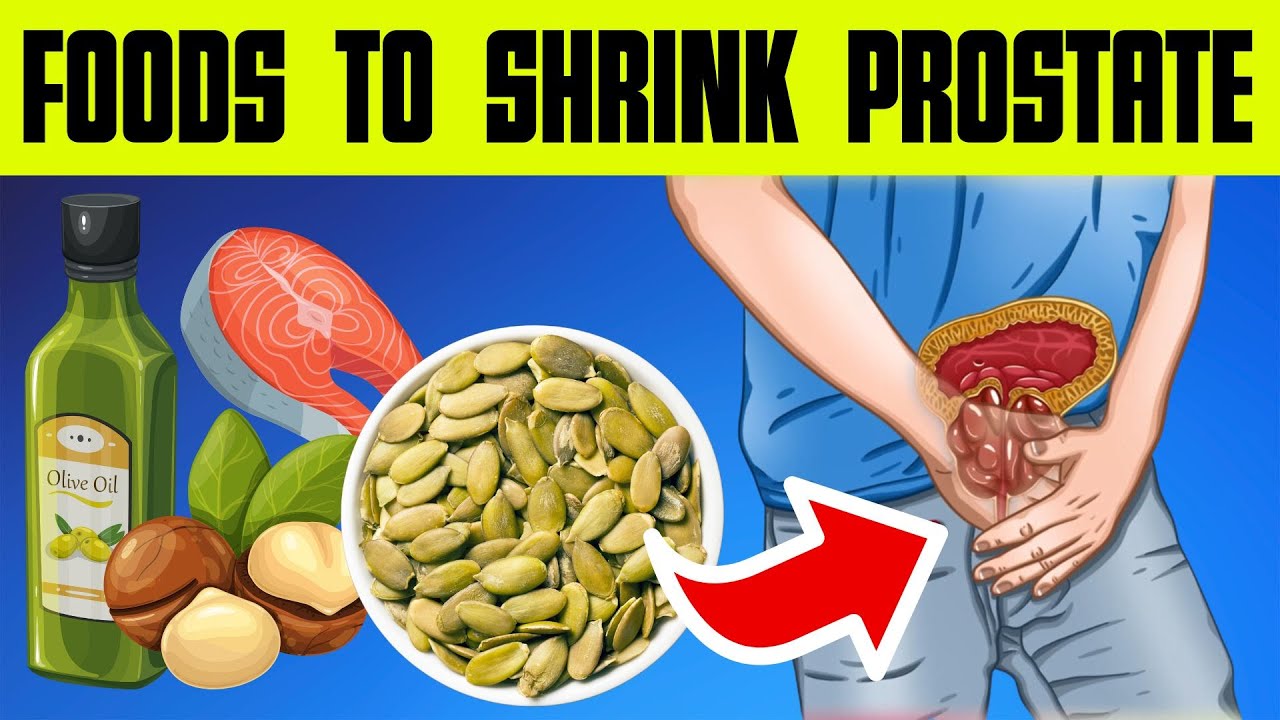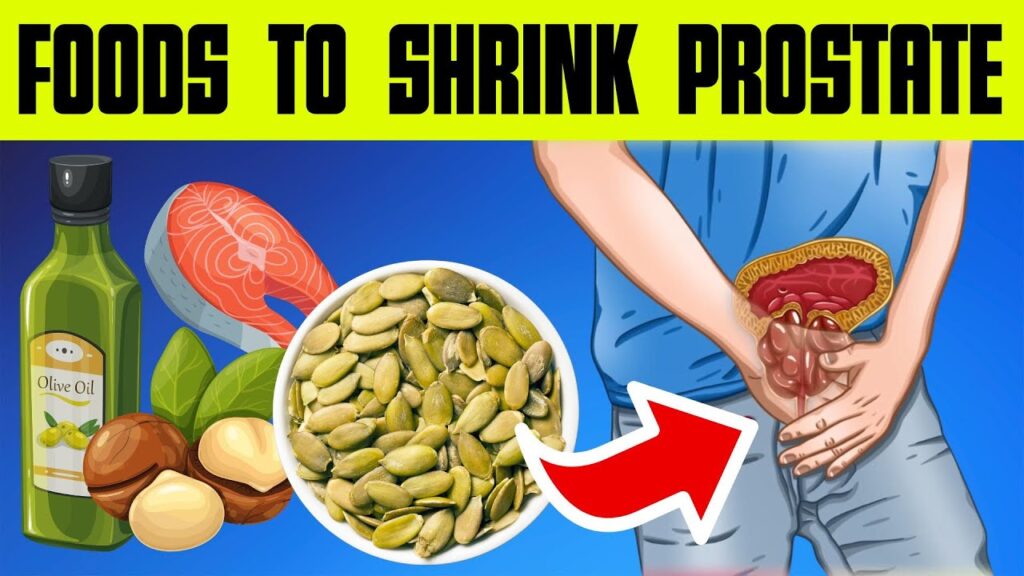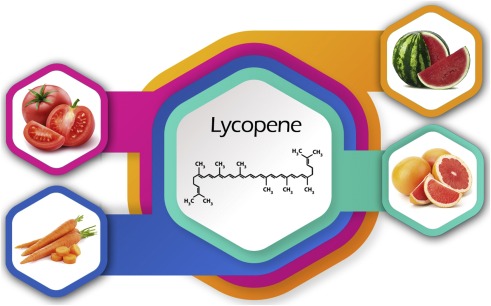The Diet-Prostate Cancer Connection Revealed: Foods to Reduce Risk

Understanding Prostate Cancer: An Overview

Prostate cancer is one of the most common forms of cancer in men, second only to skin cancer. It primarily affects the prostate gland, a small walnut-shaped gland that is responsible for producing seminal fluid. While the exact cause of prostate cancer is not yet fully understood, several risk factors have been identified. Age is a significant factor, with the risk of developing prostate cancer increasing after the age of 50. Additionally, family history, ethnicity, and certain genetic mutations may also contribute to the development of this disease.
When it comes to symptoms, early-stage prostate cancer often does not show any noticeable signs. As the disease progresses, however, men may experience symptoms such as frequent urination, difficulty in starting and stopping urination, weak urine flow, blood in the urine or semen, and discomfort in the pelvic area. It’s important to note that these symptoms can also be indicative of conditions other than prostate cancer. Therefore, it is crucial for men to consult with their healthcare provider for an accurate diagnosis if they experience any of these symptoms.
To diagnose prostate cancer, various tests are available. The most common screening test is the prostate-specific antigen (PSA) blood test, which measures the levels of PSA in the blood. Elevated PSA levels may indicate the presence of prostate cancer or other prostate conditions. However, it is important to note that a high PSA level does not necessarily mean a person has prostate cancer. Further diagnostic tests, such as a digital rectal exam (DRE) and a transrectal ultrasound, may be recommended to assess the prostate gland and obtain a tissue sample for further analysis.
Treatment options for prostate cancer depend on several factors, including the stage and aggressiveness of the cancer, the patient’s overall health, and personal preferences. Active surveillance, surgery, radiation therapy, hormone therapy, and chemotherapy are some of the common treatment approaches. Each treatment has its own benefits and potential risks, and the decision should be made in consultation with a healthcare professional.
In the following sections of this article, we will delve deeper into the role of diet and nutrition in prostate cancer prevention and management. By understanding the relationship between dietary choices and prostate health, men can make informed decisions to reduce their risk of developing prostate cancer or support their overall treatment plan. Let’s explore the link between diet and prostate cancer in more detail.
Diet and Prostate Cancer: The Link Explained

Prostate cancer is one of the most common cancers among men worldwide. While many factors contribute to the development of this disease, diet plays a significant role in both prevention and management. Numerous studies have examined the link between diet and prostate cancer risk, helping us understand the impact of certain foods and nutrients.
One key factor that researchers have identified is the consumption of red and processed meats. These meats are high in saturated fats, which have been associated with an increased risk of prostate cancer. A large-scale study conducted by the National Cancer Institute found that men who consumed the highest amounts of red and processed meats had a 12% greater risk of developing prostate cancer compared to those who consumed the least. Additionally, cooking methods such as grilling or frying at high temperatures can produce carcinogenic compounds, further increasing the risk. To reduce the risk, experts recommend limiting the intake of red and processed meats and opting for leaner protein sources.
Key Nutrients for Prostate Health
The key nutrients for prostate health play a crucial role in supporting the overall well-being of this vital organ. One such nutrient is zinc, which has been shown to have beneficial effects on prostate health. It helps to regulate testosterone levels and is involved in the synthesis of DNA, which is essential for the growth and repair of prostate cells. Good food sources of zinc include oysters, beef, pumpkin seeds, and sesame seeds.
Another important nutrient for prostate health is selenium. This trace mineral acts as an antioxidant and helps to protect the prostate from oxidative damage. It also plays a role in immune function and the production of enzymes that are involved in the regulation of prostate cell growth. Excellent sources of selenium include Brazil nuts, fish, and whole grains. However, it’s worth noting that excessive intake of selenium may have negative effects, so it’s best to aim for a balanced and varied diet that includes a moderate amount of selenium-rich foods.
| Key Nutrients | Key Concepts | Credible Source |
|---|---|---|
| Lycopene | Found in tomatoes, lycopene lowers prostate cancer risk. | American Institute for Cancer Research |
| Selenium | Reduces prostate cancer risk; sources include Brazil nuts and fish. | National Institutes of Health |
| Vitamin D | Adequate levels lower prostate cancer risk; sources include sun exposure and fatty fish. | Prostate Cancer Foundation |
| Zinc | Essential for prostate health; sources include meat, dairy, nuts, and legumes. | National Institutes of Health |
Antioxidant-Rich Foods: A Shield Against Prostate Cancer
Antioxidant-rich foods have garnered significant attention in recent years due to their potential role in protecting against various diseases, including prostate cancer. Prostate cancer is one of the most common types of cancer in men, and research suggests that oxidative stress and inflammation may contribute to its development. Antioxidants, which are compounds that counteract the harmful effects of free radicals in the body, have been shown to have protective properties against oxidative stress and inflammation.
Several studies have explored the relationship between antioxidant-rich foods and prostate cancer risk. For instance, a study published in the Journal of the National Cancer Institute found that men who consumed higher amounts of antioxidant-rich foods, such as fruits, vegetables, and whole grains, had a lower risk of developing prostate cancer. Another study, published in the journal Cancer Epidemiology, Biomarkers & Prevention, found that higher dietary intake of specific antioxidants, such as vitamins C and E, was associated with a reduced risk of aggressive prostate cancer.
While these studies demonstrate a potential link between antioxidant-rich foods and prostate cancer prevention, further research is needed to elucidate the precise mechanisms and optimal intake levels. It’s also important to note that a diet rich in antioxidants should be part of an overall healthy lifestyle, which includes regular exercise, maintaining a healthy weight, and avoiding tobacco and excessive alcohol consumption. Emphasizing the importance of a balanced and varied diet that includes a wide range of antioxidant-rich foods can be a beneficial step towards reducing the risk of prostate cancer.
The Role of Fiber in Reducing Prostate Cancer Risk
Fiber, an essential component of a healthy diet, has been associated with a reduced risk of various diseases, including prostate cancer. Prostate cancer, one of the most commonly diagnosed cancers among men worldwide, affects the prostate gland, a walnut-sized organ responsible for producing seminal fluid. While genetics and age play a significant role in the development of prostate cancer, research suggests that dietary choices, such as intake of dietary fiber, may also impact the risk.
A diet rich in fiber, derived from plant-based sources, has been linked to a lower risk of prostate cancer. Fiber can be classified into two types: soluble and insoluble. Soluble fiber forms a gel-like substance when mixed with water. It can be found in fruits, vegetables, legumes, and oats. Insoluble fiber, on the other hand, adds bulk to the stool and helps prevent constipation. It is abundant in whole grains, nuts, and seeds. Both types of fiber are beneficial for overall health, but when it comes to prostate cancer risk reduction, it appears that soluble fiber may play a more prominent role.
Cruciferous Vegetables: Nature’s Prostate Protectors
Cruciferous vegetables, including broccoli, cauliflower, kale, and cabbage, have long been hailed as nature’s prostate protectors. These vegetables are rich in compounds known as glucosinolates, which are highly beneficial for prostate health. When broken down by the body, glucosinolates are converted into biologically active compounds such as indoles and isothiocyanates, which have been shown to possess anti-cancer properties.
Research studies have demonstrated the potential of cruciferous vegetables in reducing the risk of prostate cancer. One study published in the journal Cancer Epidemiology, Biomarkers & Prevention found that men who consumed cruciferous vegetables at least once a week had a significantly lower risk of advanced prostate cancer compared to those who consumed them less frequently. Another study published in the Journal of the National Cancer Institute reported that higher intake of cruciferous vegetables was associated with a reduced risk of aggressive prostate cancer.
The protective effects of cruciferous vegetables on the prostate may be attributed to their ability to inhibit the growth of cancer cells, induce apoptosis (programmed cell death) in cancer cells, and regulate hormonal activity. Additionally, the high content of fiber, vitamins, and minerals in cruciferous vegetables adds to their prostate-protective properties. Incorporating a variety of cruciferous vegetables into your diet can be a simple yet powerful way to support prostate health and potentially reduce the risk of prostate cancer.
The Power of Tomatoes and Lycopene in Prostate Cancer Prevention

Tomatoes and lycopene have been gaining attention in recent years for their potential role in preventing prostate cancer. Lycopene is a naturally occurring pigment that gives tomatoes their red color, and it is known for its antioxidant properties. Antioxidants help to neutralize harmful free radicals in the body, which can contribute to the development of cancer. Studies have shown that lycopene may specifically target prostate cancer cells, inhibiting their growth and promoting cell death.
One research study conducted in Italy followed over 46,000 men for a period of 12 years. The results of the study showed that men who had a higher intake of lycopene-rich foods, such as tomatoes and tomato-based products, had a reduced risk of developing prostate cancer. Another study conducted in the United States found that men who consumed more than 10 servings of tomato-based foods per week had a 35% lower risk of developing prostate cancer compared to those who consumed less than 1.5 servings per week.
While these studies provide promising evidence for the potential benefits of tomatoes and lycopene in prostate cancer prevention, more research is still needed to fully understand the mechanisms at play. It is also important to note that lycopene is more easily absorbed by the body when it is consumed in cooked or processed forms, such as tomato sauce or paste, as compared to raw tomatoes. Additionally, lycopene is a fat-soluble compound, so consuming it with a source of healthy fat can enhance its absorption. Incorporating tomatoes and lycopene-rich foods into a balanced diet can be a simple and flavorful way to support prostate health. However, it is always recommended to consult with a healthcare professional before making any significant changes to your diet or lifestyle.
Fish and Omega-3 Fatty Acids: Potential Allies in Prostate Health

Fish and omega-3 fatty acids have long been touted as potential allies in promoting prostate health. Omega-3 fatty acids are a type of polyunsaturated fat found in fatty fish like salmon, mackerel, and sardines. These fats are essential for the body’s functioning and have been associated with various health benefits, including cardiovascular health and reducing inflammation.
In relation to prostate health, studies have shown promising results. Research suggests that consuming fish or omega-3 fatty acids may help lower the risk of developing prostate cancer. One study conducted on more than 47,000 men found that those who consumed fish at least once a week had a 44% lower risk of developing advanced prostate cancer compared to those who consumed fish less frequently. Another investigation found that higher consumption of omega-3 fatty acids was associated with a reduced risk of aggressive prostate cancer. While the evidence is encouraging, more research is still needed to fully understand the protective effects of fish and omega-3 fatty acids on prostate health.
The Benefits of Green Tea in Reducing Prostate Cancer Risk
Green tea has gained considerable attention in recent years for its potential role in reducing the risk of prostate cancer. Several studies have investigated the relationship between green tea consumption and prostate cancer, with promising results. One study, published in the American Journal of Clinical Nutrition, found that men who consumed green tea regularly had a lower risk of developing prostate cancer compared to those who did not consume green tea.
The beneficial effects of green tea on prostate cancer risk can be attributed to its rich content of polyphenols, particularly a type called catechins. These polyphenols have been shown to exhibit antioxidant and anti-inflammatory properties, which play a crucial role in cancer prevention. Additionally, green tea may also inhibit the growth of cancer cells and induce apoptosis, or programmed cell death, thereby preventing the progression of prostate cancer. However, it’s important to note that further research is still needed to fully understand the exact mechanisms by which green tea exerts its protective effects on prostate cancer.
Whole Grains and Prostate Health: What You Need to Know
Whole grains have long been praised for their numerous health benefits, and when it comes to prostate health, they certainly don’t disappoint. These nutrient-rich grains, such as brown rice, whole oats, quinoa, and whole wheat, are packed with fiber, vitamins, minerals, and phytochemicals that contribute to overall well-being. But what exactly makes whole grains so beneficial for prostate health? Let’s delve into the details.
First and foremost, whole grains are an excellent source of dietary fiber. Fiber plays a crucial role in maintaining a healthy digestive system and regular bowel movements. Research suggests that a high-fiber diet may help reduce the risk of developing prostate cancer. Fiber helps to regulate hormone levels in the body, including testosterone, which is known to influence prostate health. Additionally, it aids in keeping weight in check, which is also important for prostate health. So, incorporating whole grains into your diet is not only delicious but also contributes to a proactive approach in maintaining optimal prostate health.
Reducing Prostate Cancer Risk with Healthy Fats
Healthy fats are an essential component of a balanced diet and play a crucial role in reducing the risk of prostate cancer. Incorporating these fats into your daily meals not only supports overall health but also provides protective benefits for the prostate gland. Research has shown that certain types of fats, such as monounsaturated fats and polyunsaturated fats, can help reduce inflammation in the body and may lower the risk of developing prostate cancer.
One type of healthy fat that has garnered significant attention in recent years is omega-3 fatty acids. Found abundantly in fatty fish like salmon, tuna, and sardines, as well as in walnuts and flaxseeds, omega-3 fatty acids possess anti-inflammatory properties that may contribute to a decreased risk of prostate cancer. Additionally, studies have suggested that these fats may inhibit the growth of prostate cancer cells and lower the risk of aggressive forms of the disease. Including a variety of omega-3-rich foods in your diet can be an effective way to support prostate health and reduce the risk of prostate cancer.
The Impact of Dairy Products on Prostate Cancer Risk
Numerous studies have examined the potential link between dairy product consumption and the risk of developing prostate cancer. While the findings are not entirely conclusive, overall evidence suggests that high intake of dairy products may be associated with an increased risk of prostate cancer.
One potential explanation for this association is the hormone content in dairy products. Cow’s milk naturally contains hormones such as estrogen and insulin-like growth factor 1 (IGF-1), which have been shown to stimulate the growth of prostate cells. Regular consumption of dairy products may therefore contribute to an increased risk of prostate cancer. It is important to note, however, that more research is needed to fully understand the potential mechanisms behind this link and to determine whether specific types of dairy products or processing methods have varying effects on prostate cancer risk.
Superfoods for Prostate Health: Exploring the Options
Superfoods are often touted for their potential health benefits, and when it comes to prostate health, there are several options worth exploring. One such superfood is broccoli. Rich in a compound called sulforaphane, broccoli has been shown to have anti-cancer properties, including the ability to target prostate cancer cells and inhibit their growth.
Another superfood that has gained attention for its potential prostate health benefits is pomegranate. Packed with antioxidants, pomegranate has been found to have anti-inflammatory properties and may help in reducing the risk of prostate cancer. Studies have shown that pomegranate extract can inhibit prostate cancer cell growth and induce apoptosis, or programmed cell death, in these cells.
In addition to broccoli and pomegranate, other superfoods that may promote prostate health include green tea, turmeric, tomatoes, and fish rich in omega-3 fatty acids. These foods contain various compounds that have shown potential in reducing prostate cancer risk and promoting overall prostate health. While more research is needed to fully understand the mechanisms behind these superfoods’ benefits, incorporating them into a balanced diet may be a wise choice for men looking to support their prostate health.
Creating a Prostate-Friendly Diet: Practical Tips and Suggestions
A prostate-friendly diet plays a crucial role in maintaining optimal prostate health and reducing the risk of prostate cancer. Incorporating certain foods and nutrients into your daily meals can offer significant benefits. Firstly, prioritize a diet rich in fruits, vegetables, and whole grains. These plant-based foods are high in antioxidants, vitamins, minerals, and fiber, which are essential for prostate health. Studies have shown that antioxidants help protect the prostate cells from damage, reducing the risk of cancer development. Furthermore, the high fiber content in fruits, vegetables, and whole grains promotes healthy digestion, which in turn supports overall prostate health.
In addition to fruits, vegetables, and whole grains, certain foods have been specifically linked to prostate health. For example, cruciferous vegetables like broccoli, cauliflower, and Brussels sprouts contain compounds that have been shown to inhibit the growth of prostate cancer cells. Tomatoes, rich in the antioxidant lycopene, may also offer protection against prostate cancer. Fish, such as salmon and sardines, are excellent sources of omega-3 fatty acids that have anti-inflammatory properties, potentially reducing the risk of prostate cancer. Furthermore, green tea, known for its numerous health benefits, contains powerful antioxidants that may help lower prostate cancer risk.
When it comes to creating a prostate-friendly diet, it is important to consider the cooking methods as well. Opt for grilling, baking, or steaming your foods rather than frying them to minimize the intake of unhealthy fats. Additionally, reduce the consumption of processed foods, red meats, and sugary beverages, as they have been associated with an increased risk of prostate cancer. Be mindful of portion sizes to maintain a healthy weight, as obesity has been linked to a higher risk of developing prostate cancer.
By making conscious choices and incorporating these practical tips into your daily diet, you can create a prostate-friendly eating plan that may help reduce the risk of prostate cancer and promote overall prostate health. However, it is always advisable to consult with a healthcare professional or nutritionist to tailor your diet to your specific needs and medical history. Together with regular exercise and a healthy lifestyle, a prostate-friendly diet can contribute to your long-term wellbeing.
What is prostate cancer?
Prostate cancer is a type of cancer that develops in the prostate gland, which is part of the male reproductive system.
How does diet affect prostate cancer risk?
Diet plays a significant role in prostate cancer risk. Certain nutrients and foods can help reduce the risk, while others may increase it.
What are some key nutrients for prostate health?
Key nutrients for prostate health include antioxidants, fiber, lycopene, omega-3 fatty acids, green tea, and healthy fats.
How do antioxidants protect against prostate cancer?
Antioxidants help protect against prostate cancer by neutralizing harmful free radicals in the body, which can cause damage to cells and DN
What role does fiber play in reducing prostate cancer risk?
Fiber helps reduce prostate cancer risk by promoting regular bowel movements and preventing the buildup of harmful substances in the colon.
Are cruciferous vegetables beneficial for prostate health?
Yes, cruciferous vegetables like broccoli, cauliflower, and Brussels sprouts contain compounds that have been shown to have protective effects against prostate cancer.
How do tomatoes and lycopene prevent prostate cancer?
Tomatoes and lycopene, a powerful antioxidant found in tomatoes, have been linked to a lower risk of developing prostate cancer.
Can fish and omega-3 fatty acids help with prostate health?
Yes, fish and omega-3 fatty acids, found in fatty fish like salmon, have shown potential benefits for prostate health.
What are the benefits of green tea in reducing prostate cancer risk?
Green tea contains compounds called catechins, which have been found to have anticancer properties and may help reduce the risk of prostate cancer.
Why are whole grains important for prostate health?
Whole grains are rich in fiber and other nutrients that can help reduce the risk of prostate cancer and promote overall prostate health.
Should I be cautious about consuming dairy products for prostate health?
Some studies suggest that high consumption of dairy products, especially high-fat dairy, may increase the risk of prostate cancer. It’s important to consume dairy in moderation.
What are some superfoods that can promote prostate health?
Superfoods for prostate health include berries, pomegranates, turmeric, garlic, and green leafy vegetables.
How can I create a prostate-friendly diet?
To create a prostate-friendly diet, include a variety of fruits, vegetables, whole grains, lean proteins, and healthy fats. Limit processed foods, red meat, and high-fat dairy products. Stay hydrated and maintain a healthy weight.





